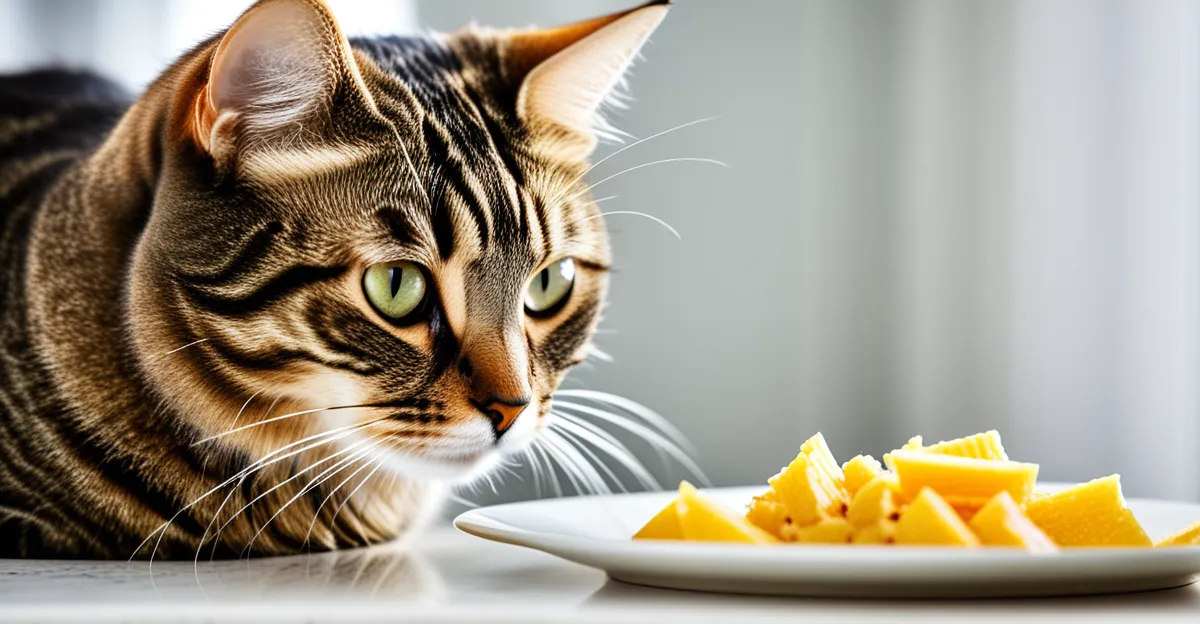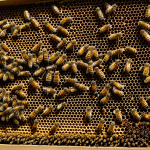Understanding Hyperthyroidism in Cats
Hyperthyroidism in cats is a prevalent condition caused by an excess of thyroid hormones, leading to a multitude of health issues. It typically occurs due to an enlargement of the thyroid gland, often as a result of non-cancerous adenomas. This thyroid hormone imbalance accelerates metabolic rates, affecting various aspects of feline health.
Symptoms are usually noticeable and can significantly impact a cat’s well-being. Common signs include increased appetite coupled with weight loss, elevated thirst, hyperactivity, and instances of vomiting or diarrhea. It’s vital for cat owners to understand these symptoms to seek timely veterinary care.
Topic to read : Comprehensive Cat Care: Pro Tips to Protect Your Folded-Ear Felines from Persistent Ear Infections
Dietary management plays a crucial role in supporting hyperthyroid cats, helping to mitigate some of the symptoms and improve life quality. Nutritional adjustments, including specific nutrients and balanced feeding strategies, can help stabilize their condition. Proper diet can maintain energy levels and provide necessary relief alongside other medical treatments.
Recognising the importance of dietary management can facilitate better outcomes in hyperthyroid cats, ensuring they live healthier, happier lives. Engaging with a veterinarian for tailored dietary advice is imperative for effective health management.
Topic to read : Crafting Fun and Efficient Indoor Exercise Plans for Your Feline Friend
Essential Nutrients for Managing Hyperthyroidism
Hyperthyroidism in cats requires tailored nutrition to maintain optimal feline health. Understanding the nutrients for hyperthyroid cats is crucial for owners wishing to support their pet’s well-being.
Importance of Protein
Protein is vital for hyperthyroid cats, providing energy to counterbalance the thyroid hormone imbalance. It aids in muscle maintenance amidst potential weight loss. Highly digestible sources such as chicken or fish are beneficial and should form the core of a feline diet.
Role of Healthy Fats
Incorporating healthy fats is essential, enhancing energy levels in hyperthyroid cats. Fats, such as those from fish oil, support nutrient absorption and dietary fiber processing. This dietary component also aids in regulating metabolism and can improve coat condition.
Inclusion of Essential Vitamins and Minerals
Essential vitamins and minerals must be part of a hyperthyroid feline’s diet. The inclusion of iodine, calcium, and potassium contributes significantly to thyroid regulation and overall cat health. These nutrients work together to mitigate the metabolic effects caused by excess thyroid hormone while promoting proper organ functionality and metabolic balance.
Suitable Ingredients for the Diet
When crafting a diet for hyperthyroid cats, selecting the best foods for hyperthyroid cats is essential. High-quality commercial diets designed for hyperthyroid cats often provide balanced nutrition. These diets are rich in protein and healthy fats, aiding in maintaining muscle mass and energy levels. Ideal foods include well-known brands offering formulations that reduce iodine levels, thereby managing thyroid hormone production effectively.
For those opting for homemade meals, using suitable ingredients is paramount. Incorporate lean meats such as chicken or rabbit, which supply ample protein without unnecessary fat. Adding pumpkin or sweet potato can provide dietary fiber, promoting healthy digestion while managing weight.
Moisture in the diet plays a significant role in ensuring proper feline health. Canned or wet foods are highly beneficial, as they help maintain hydration, crucial for cats with heightened metabolism due to thyroid hormone imbalances.
In summary, while choosing or preparing food, ensure that meals are balanced and rich in proteins and fibers, with adequate moisture to support overall health. Regular consultation with veterinarians can help tailor diets to each cat’s specific needs.
Portion Control and Meal Frequency
Feeding guidelines for hyperthyroid cats are pivotal for managing weight and ensuring proper nutrition. Portion control becomes essential in combating the increased metabolism caused by hyperthyroidism, helping maintain optimal feline health.
Determining Proper Portion Sizes
Portion sizes should be carefully managed. A veterinarian can help establish the right quantity based on your cat’s age, weight, and health status. Typically, smaller, balanced meals are more effective in catering to the heightened needs without overwhelming the digestive system.
Guidelines for Meal Frequency
In terms of meal frequency, feeding hyperthyroid cats multiple times a day is recommended. Three to four smaller meals can help maintain energy levels consistently, aligning with their increased metabolic rate. Regular monitoring of the cat’s response to these feedings is important to ensure they are receiving enough nourishment.
Weight changes should be closely monitored, and adjustments made accordingly. If weight gain or loss is observed, discuss with a vet whether modifying portion sizes or meal frequency might benefit your cat’s overall health, maintaining balance in their feline diet essentials. This strategy aids in stabilizing energy levels and supports effective management of thyroid hormone imbalances.
Foods to Avoid
When managing hyperthyroidism in cats, understanding dietary restrictions is crucial. Certain foods and ingredients may exacerbate symptoms, impacting feline health adversely. Common foods to avoid include those high in iodine, as excessive iodine can contribute to further thyroid hormone imbalance. Dietary restrictions recommend steering clear of fish-based diets unless specifically formulated for hyperthyroid conditions.
Avoiding some commercial diets is essential. Many standard cat foods are not designed for hyperthyroid cats and may contain high levels of iodine and carbohydrates, which could worsen symptoms. It’s important to select specialized diets that consider their unique dietary needs and focus on maintaining a balanced nutritional profile.
Human foods can be particularly harmful to hyperthyroid cats. Ingredients such as chocolate, onions, and excessive salt should be strictly avoided due to their potential to aggravate the condition. Furthermore, carbohydrates from grains like corn or wheat could lead to further dietary imbalance, impacting overall health.
By adhering to these dietary restrictions and consulting with veterinarians, you can create a safer, more effective diet for your hyperthyroid cat, minimizing symptom progression and supporting optimal health.
Additional Supplements and Treatments
In managing hyperthyroidism in cats, incorporating supplements for hyperthyroid cats can enhance energy levels and complement existing treatments. Supplements such as L-carnitine and omega-3 fatty acids can promote feline health by supporting muscle mass and improving metabolic processes. These are often recommended to address the thyroid hormone imbalance effectively.
Recommended Supplements
Notable adjunct treatments include vitamin E, which contributes to immune support, and taurine, vital for heart and eye health in cats. Including these supplements can yield positive health benefits and improve the cat’s overall welfare. Always seek a veterinarian’s guidance before incorporating any new supplement, ensuring it aligns with the cat’s specific health needs and dietary fiber intake.
Alternatives for Energy Boost
Natural alternatives like spirulina and kelp can provide additional energy enhancement. These options can offer a natural boost to a cat’s vitality, particularly when dealing with the effects of a thyroid hormone imbalance. Considering a holistic approach alongside traditional treatments can lead to more comprehensive health management.
Regular veterinary consultations ensure that any treatment plan, whether supplement-based or holistic, is tailored specifically to a cat’s needs, maintaining optimal feline diet essentials.
Monitoring Weight and Health Progress
In managing hyperthyroidism in cats, vigilant monitoring cat health and consistent weight tracking ensure effective disease management. Key indicators of health such as unexpected weight loss or gain can signal whether dietary adjustments are needed, impacting weight management strategies. Hyperthyroid cats often experience erratic weight changes, making regular monitoring crucial to adjust their dietary plan accordingly.
Veterinary check-ups are fundamental in the health assessment of hyperthyroid cats. These routine visits help track the progression of the condition and assess the effectiveness of the current management strategies. Veterinarians can provide critical insights and necessary interventions based on the assessed health data. Frequent assessments can aid in promptly addressing any nutritional deficiencies or hormonal imbalances.
Maintaining dietary and weight records helps owners take proactive measures. Utilizing charts or digital logs to document a cat’s weight, feeding schedule, and symptoms enhances understanding of their regular patterns and deviations. This organized record-keeping enables timely interventions and smoother communication with veterinarians. By prioritizing regular assessments and maintaining comprehensive health records, cat owners can effectively support their pet’s journey towards better health.
Resources for Cat Owners
Accessing the right veterinary resources is crucial for managing hyperthyroidism in cats. Personalized advice from professionals helps tailor treatment plans, ensuring effective feline health management. Regular consultations with veterinaries can provide insights based on the cat’s specific condition, supporting a comprehensive approach to issues like thyroid hormone imbalances.
Recommended Veterinary Practices
Leading veterinary practices offer specialised care for hyperthyroid cats. Clinics that are knowledgeable about dietary fiber and other essential needs ensure balanced and effective treatment strategies. Ask your local vet about specific services they offer for hyperthyroid cats and inquire about recommended diet and medication protocols.
Online Support Groups and Forums
Engage with online communities for emotional support and practical advice from other cat owners dealing with similar issues. Platforms like dedicated cat health forums allow for sharing experiences and feline diet essentials knowledge. These spaces also offer access to diverse perspectives on managing feline diseases, enriching your understanding.
Educational websites provide extensive cat health information, helping owners become well-informed about conditions like hyperthyroidism. These resources expand knowledge, empowering owners to make informed decisions about nutrition, supplements, and other care aspects. Being well-equipped with resources ensures an effective and nurturing approach to managing your cat’s health.









